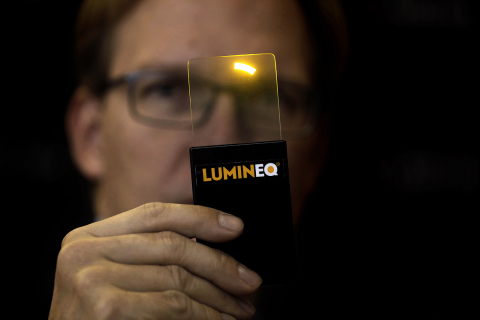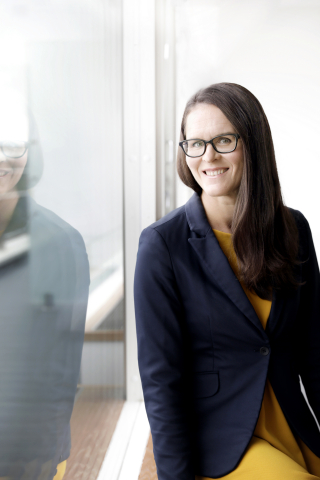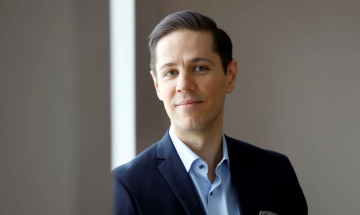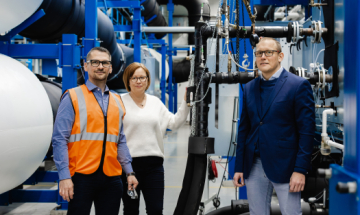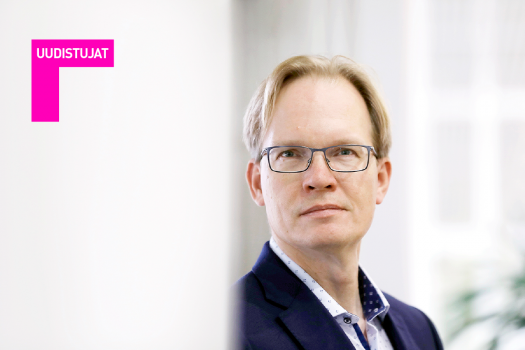
Beneq is growing through a culture of falling forwards: “Globality must be the starting point when you’re in the technology business”
The CEO of the Beneq technology company, Jukka Nieminen, starts off by dropping rather a large coronavirus bomb.
“Our turnover this year will clearly exceed last year’s, and next year is looking even better, to put it modestly. Our customers are currently looking for future competitive ability by investing in new technology,” explains Nieminen, but apologises immediately afterwards for his enthusiasm, as the year that brought coronavirus has been tough on so many Finnish companies.
Beneq’s turnover increased by 3.6 million euros last year, rising to 27.2 million. Growth has been strong ever since the company was founded.
“Our key team saw in their previous jobs how growth is possible and what increasing turnover five-fold in a couple of years means for the company’s processes, staff, and operating method. Their ethos involves the strong belief that internationalisation and operating on the global market are absolute requirements for success.”
In a “typical year”, 98 per cent of Beneq’s equipment and services are sold for export. Not even the company’s first order came from Tampere or Sweden.
“Order number one came from South Korea. Companies may feel that this is a little overly ambitious, but you have to seek trade where the business is. There are no limits on the playing field, and globality must be the starting point when you’re in the technology business,” says Nieminen.
11 PER CENT OF STAFF HOLD A DOCTORATE IN TECHNOLOGY
Beneq is known worldwide for its Atomic Layer Deposition (ALD) coating equipment and for its extremely durable and transparent electroluminescent displays.
- 27 of the world’s largest companies are Beneq customers
-
- Beneq was established in Finland in 2005 and has its head office in Espoo.
- In 2019, the company’s turnover was 27.2 million euros. The turnover comes almost entirely from abroad.
- Beneq has 150 employees from 13 different countries. Next year, 30 more specialists will be recruited to Finland.
- The electroluminescent displays manufactured by Beneq are unique, the most durable in the world, and can even be made less than one millimetre thick. The displays are used in vehicles and optical devices, for example, as well as in challenging conditions, such as in machinery cabs and portable ventilators.
- The ALD (Atomic Layer Deposition) department’s coating equipment and services are used to protect components, sensors and transducers in 5G and Internet of Things systems, among other things.
- The coatings protect sensitive equipment and materials from dirt, moisture, and corrosion. They can be used to precisely protect very complex surfaces. At the same time, they can be used to form conductors or insulators.
- Beneq’s customers include the semiconductor and automobile industries, as well as medical and optics companies.
- 27 of the world’s 100 biggest companies are Beneq customers.
- In 2012, Beneq purchased electroluminescent display operations from the American company Planar Systems and, as part of the acquisition, took over the display plant in Espoo originally built by Lohja Oy.
- In September 2018, the Chinese company SRI Intellectual purchased Beneq and since 2019 has invested more than 20 million euros to develop the company’s balance sheet, products and premises.
“We have sought growth in transparent display applications, and have developed an extremely transparent display to improve the appearance or look of products. Our bright, transparent displays allow for entirely new kinds of solutions,” explains Nieminen.
Beneq has always been very open-minded towards developing new business, applications, and markets.
“We have always been the first, and often the only ones, to arrive, and have sought new applications using science and technology. We have often arrived too early, but we would rather be too early than too late.”
Jukka Nieminen hopes that Finland will continue to be a highly educated country. “You have to ask how well our universities are performing in global rankings. Instead of maintaining our current ranking, we should seek to rise to the top worldwide in selected fields in terms of both research and teaching.”
During its history, the company has received significant investments, and in the last two years, their number has accelerated further. Last year, Beneq’s Chinese owner invested more than 20 million euros in the company. An over two million-euro extension to the clean space premises is currently under way for the construction of semiconductor machines.
“We have a significant patent portfolio as a result of the investments. The most important and largest investment however is our skilled staff, who roll up their sleeves and get to work in the mornings. They have all the capabilities that make us Beneq,” says Nieminen in praise of his staff.
Eleven per cent of Beneq’s staff have defended a doctoral thesis in the field of technology, and most are highly educated.
MEETING CUSTOMERS’ NEEDS WITH FINNISH RESOURCEFULNESS
Beneq’s focus is always on the future, and in Nieminen’s words, their work takes place in a “culture of falling forwards”.
“Beneq is an extremely growth and solution-oriented company. We don’t think about threats; we boldly head towards the opportunities offered by customers. We seek technical solutions and business models in a very agile and flexible way, with Finnish resourcefulness.”
Above all, customers are partners, with whom Beneq seeks new solutions to meet their needs.
Partnerships and cooperation are precisely the magic words for growth and modernisation for small and medium-sized companies,” says Executive Director Laura Juvonen from Technology Industries of Finland.
“Nowadays, it’s rare for any company to be able to carry out major development work on their own. You need to get closer to the customer, understand their business, and offer them competence that supports and complements both companies,” she says.
Everyone needs to modernise, says Laura Juvonen. “The coronavirus crisis has drastically changed how people work, how they act as customers, and how they utilise digitalisation. If you don’t get involved as a company, you can easily and quickly find that you have become one of the weaker members of the group.”
Nieminen believes that the most inspiring thing about working at Beneq is being able to work with the sharpest specialists at world-leading technology companies.
“The people who work for us are often scientifically, technically, and commercially oriented. They see constant work with developing technology as an excellent opportunity.”
MODERNISATION REQUIRES ATTITUDE AND ADAPTABILITY
Business must modernise to remain viable.
“When business is fundamentally dependent on technological development, other technologies are constantly evolving and your own becomes obsolete. Modernisation requires you to have the right attitude, to be alert, and to be able to adapt. You need to learn how to move quickly and confidently, or your competitor will get there first,” says Jukka Nieminen.
Due to the global coronavirus crisis, a new market division is forming: digitalisation is accelerating, and sustainable development solutions are increasingly important, points out Laura Juvonen.
“Strict carbon neutrality targets and companies’ goals for modernisation open up plenty of opportunities for Finland. At the same time, modernising and offering solutions that utilise digitalisation and the challenge of sustainable development are our only chance of success,” she says.
Help with modernisation is available from Business Finland, Centres for Economic Development, Transport and the Environment, the FiTech Network University’s free courses, and from partner companies, says Juvonen.
“It is really important to highlight your staff’s training and competence. Support and partnerships for this can be obtained from universities and universities of applied sciences. Small and medium-sized companies should consider whether they could find partners for skills development in other companies of the same scale, and whether they could carry out joint procurement for training.”
TRUST AND PRODUCTIVE THINKING ARE KEY
Beneq is nowadays entirely Chinese-owned. According to Nieminen, the owner strongly supports the company’s operational development and the management’s proposals for directing investments to Finland in particular.
So, does Finland have strengths that keep the international company’s registered office in the Nordics?
“The results achieved through Finnish work must be competitive in product development and business development. In order to compete with corresponding international teams, an extremely high level of education is an absolute must, and you need to have skilled people who take the initiative on the global market,” says Nieminen.
He believes that successful national brand work is a bonus for Finland.
“The world’s happiest country and our management of the coronavirus crisis have attracted interest in Finland. And modern technology means that even our notorious location isn’t really an issue,” points out Nieminen, whom we contacted working in Luhanka, central Finland.
Another of Finland’s strengths is its society of trust.
“It’s just not something that is self-evident worldwide. In Finland, there is a default trust among people and towards institutions, and that makes Finnish society strong. When you feel psychologically secure in your own existence, you can focus on your work, product development, and productivity. Productive thinking is the most valuable thing that such a society can produce in order to remain viable and capable of collaboration.”
Text: Marjo Ollikainen, photos: Liisa Takala
